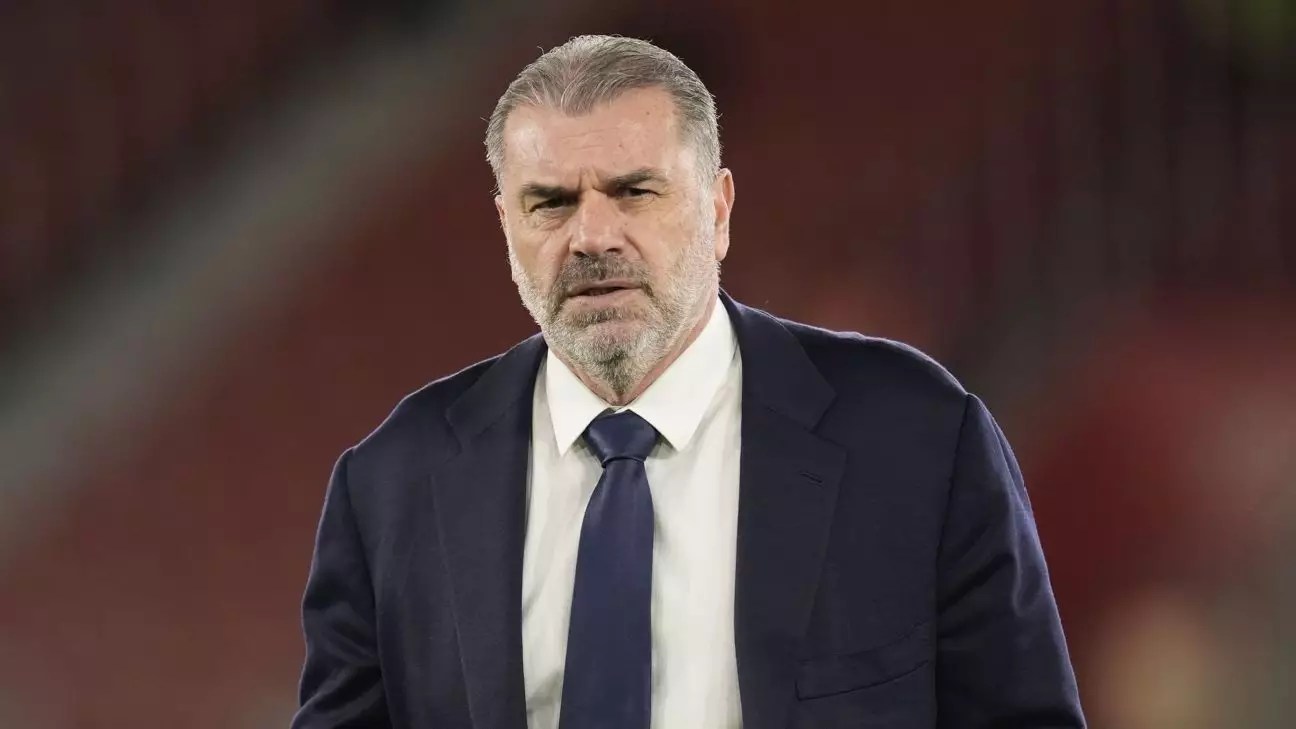Ange Postecoglou, the Australian manager overseeing Tottenham Hotspur, has recently come under intense scrutiny from analysts and fans alike. His tenure, which began last summer, has not been free from controversy, particularly concerning his audacious attacking style that has become his trademark. The criticism has exacerbated this season as Spurs currently languish in 10th place in the Premier League, with a disheartening performance that has seen them win only two out of their last seven matches across all competitions.
In a high-stakes Carabao Cup quarterfinal against Manchester United, the limitations of Postecoglou’s game plan became glaringly evident when his side, leading 3-0, nearly surrendered their advantage to a revived United side. This match served as a microcosm of the challenges Postecoglou faces; while the intent to maintain a forward-thinking approach is commendable, it raises questions concerning tactical adaptability, especially in moments of intense pressure.
The Australian’s recent comments regarding the media’s portrayal of him highlight a fraught relationship with public perception. Postecoglou pointedly remarked that he considers some of the criticisms he has received as “offensive,” attributing part of this harsh judgment to what he describes as his “silly accent.” His candid perspective suggests that he believes cultural differences may lead to a lack of understanding or respect for his coaching style.
Former Liverpool defender Jamie Carragher’s critical analysis of Postecoglou’s tactics post-match signaled a growing sentiment among pundits that Spurs might benefit from a more pragmatic and cautious game plan. Carragher’s call for Spurs players to challenge their manager’s tactics intensifies the discourse around managerial authority and player agency in high-stakes situations.
However, Postecoglou’s response indicates a commitment to his philosophy, implying that he is intent on remaining unwavering in his approach despite external pressures. He emphasizes a distinction between constructive critique and sensationalism, conveying that some of the negativity may stem from those merely seeking headlines rather than fostering genuine football discourse.
In moments of adversity, support from peers can be invaluable. Surprisingly, Postecoglou has garnered backing from an unexpected ally in the form of Liverpool manager Arne Slot. Slot, who is successfully establishing his own identity within the sport, has publicly commended Postecoglou for reigniting Tottenham’s identity. This acknowledgment not only reinforces a sense of camaraderie among managerial peers but also highlights a broader understanding of the challenges faced in their respective roles.
Slot’s recognition is particularly poignant as he himself navigates the complexities of managing a team forged in the image of a storied predecessor, Jürgen Klopp. By noting the significance of respect among managerial counterparts, Postecoglou conveys a belief that despite divergent philosophies, shared experiences can foster unity within the competitive landscape.
At 59 years of age, Postecoglou is embracing the challenge of placing his stamp on Tottenham Hotspur’s identity while wrestling with the demands and expectations that come with such a prestigious role. His perseverance in pursuing an attacking brand of football illuminates his passion for the game, even as frustrations from outside the club mount. Importantly, he finds solace in focusing on the core of his passion: the beautiful game—saying he appreciates his life and will continue doing what he loves, regardless of external criticism.
The juxtaposition between the expectation for immediate results and the necessity of developing a recognizable footballing identity is a common narrative for managers, especially in a league as demanding as the Premier League. Postecoglou’s story serves as a reminder that patience and fortitude are fundamental attributes for any manager hoping to cultivate lasting change, not just for themselves but for the clubs and communities they represent.
As Tottenham steers through rocky waters this season, Postecoglou’s willingness to embrace criticism while remaining loyal to his football philosophy casts a significant light on the complexities of modern management. With a blend of defiance and humility, he signifies that navigating the highs and lows of football could serve not just as a test of tactical acumen but also as a testament to one’s character in the beautiful game.


Leave a Reply